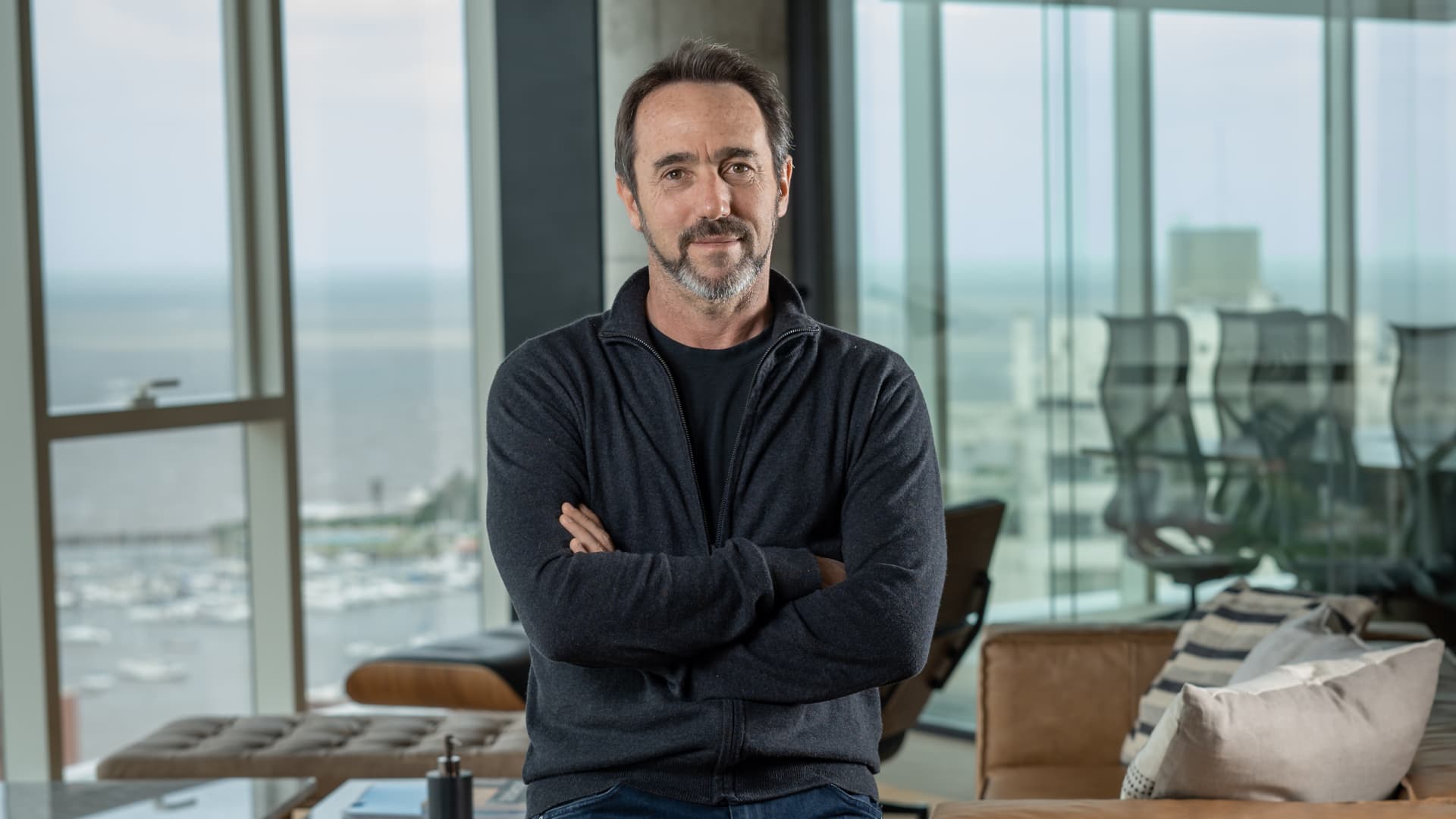One of the world’s largest e-commerce companies is emerging as a top pick on Wall Street as investors look for tech opportunities beyond the Magnificent Seven.
MercadoLibre, an Argentinian e-commerce and payments platform that’s incorporated in Delaware and actively traded on Nasdaq, is up 34% in 2024, compared to a roughly 27% rise for Amazon, and 20% for the S&P 500. The company was founded 25 years ago by CEO Marcos Gaplerin at the height of the dot com boom. It now dominates online sales in Brazil, Argentina, Mexico, Chile and makes up roughly half of online sales in South America, according to eMarketer. It also operates a digital payments platform called Mercado Pago.
Roughly 90% of Wall Street analysts who cover the stock rate it a “buy,” with an average price target of $2,268 — about 8% upside from where it was trading this week, according to FactSet. There are no sell ratings.
Brad Gerstner of Altimeter Capital is one such bull. He highlighted expanding profit margins and MercadoLibre’s AI potential as reasons he’s “excited” by the stock.
“You look at companies like MercadoLibre … a lot of companies that people have kind of forgotten about as [investors] moved in to the Magnificent Seven — I think there are going to be a lot of internet companies that are benefited by AI,” Gerstner told CNBC’s Scott Wapner at the Goldman Sachs Communicopia conference this month. “It’s not only margin expansion, but reacceleration at the top, where they can acquire customers, improve products in a way that make it easier for customers to buy, and take friction out of the system.”
Silicon Valley to Buenos Aires
Galperin came up for the idea of MercadoLibre while he was a student at Stanford Graduate School of Business in Palo Alto, California. He started to look for seed funding at a time when few investors were committing capital outside California.
“There was no venture capital for Latin America. Actually, there was little venture capital for anything outside of Silicon Valley. Even if you were an entrepreneur based in New York, the investors were all on Sand Hill Road,” Galperin told CNBC, referring to the Wall Street of the West Coast. “I don’t think they really cared about exploring other parts of the world.”
That investor mindset has changed. Last year, venture-backed companies in Latin America raised $3.3 billion across nearly 1,000 deals, according to PitchBook. At the peak in 2021, the region brought in $16.3 billion.
But back in the late 1990s, Galperin…
Click Here to Read the Full Original Article at Investing…


